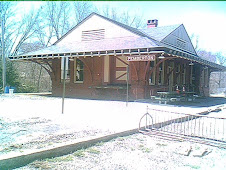Planning funds for Salem County farms at standstill
ALLOWAY TWP. - The money is out there but the township seems to be at a standstill in its effort to utilize approximately $750,000 in state planning incentive grant funding for farmland preservation, residents believe.
Although farmers continue to apply for this coveted funding here, to date there have been no awards made in the municipality, officials said. Alloway has been eligible for the grant money since about November of 2008, according to resident Sharon Coleman.
She asked during Thursday's meeting for the township committee to proceed with a sense of urgency in getting some of these farms preserved, considering the state's uncertain future acquiring dedicated funding sources.
The State Agriculture Development Board awards planning incentive grants (PIG grants) on a competitive basis to municipalities and counties across New Jersey.
"I'm really perplexed why this project hasn't had the urgency that other issues in our township have," Coleman said, later adding "I know agriculture is a side thing but it seems like it's the ugly sister."
Mayor Edwin Masker said Friday that the township is going to look into what it will take to get this process finished and who can do the job.
Some residents have recently had trouble pinpointing where the township committee stands in the ongoing debate of preservation versus development. The PIG grants issue has further shaken their confidence.
But Masker and committeemen Joseph Fedora and William "Rex" Cobb all gave a resounding support of agriculture Thursday as a necessary function to the township.
"I do think agriculture is important for this township, no doubt about that," Masker said.
"I'd be kind of wrong if I was practicing it and didn't like it," Cobb said. "I don't make a living by my farm but I do grow things and cut down a few trees, so I am for agriculture and farmland preservation."
Fedora added, "It's more than important for this township, I think it's essential."
Though Cobb also said he felt the township is losing vital ground by having so much open space saved. Farmland pays some taxes, open space does not, he said.
"Every piece of land that you use that becomes open space, you lose ratables on it," Cobb said. "We can barely now afford our taxes."
He said when the former Holly Hills golf course became open space the township lost more than $60,000 in taxes, and when Paradise Lake went the same route the township lost more than $57,000 in taxes.
Yet not even building may be the answer, Masker noted.
"I've been told, actually by a Green Acres representative, that any development is a negative ratable, including commercial development," Masker said. "Which is difficult because we all have this elusive ratables chase."
Resident Marilyn Patterson alluded to some figures that she said show just how costly homes are compared to preservation.
She said if Alloway were to abandon preservation and encourage development, every $350,000 home would put it further in debt. Cheaper homes would increase that debt.
The township loses $3,840.50 for each $350,000 home with one school-aged child, she said. More children would increase that loss.
According to Patterson, for the same tax loss created by building a $350,000 house with one child, the township could preserve 642 acres of open space.
"No matter how you look at it, preserving land is always a good financial deal for Alloway Township," Patterson said. "Every dollar that the state or non-profits spend in Alloway Township saves us money."




